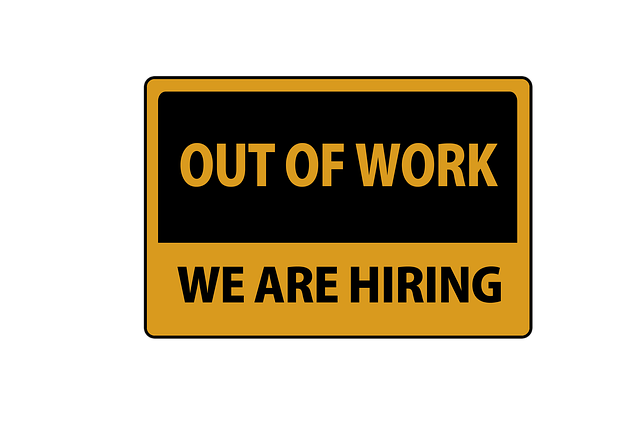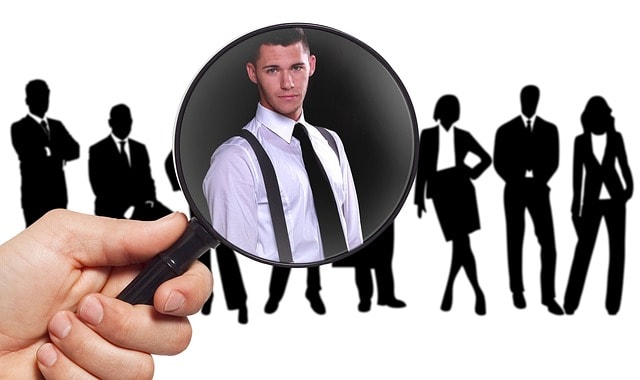
Hiring practices can sometimes be marred by discrimination and other unfair behaviors. Understanding your rights and the steps you can take if you believe you’ve been a victim of unfair hiring practices is crucial. It can help you during your unfair hiring practices lawsuit, but it’s a bit more complicated than that.
Understanding An Unfair Hiring Practices Lawsuit
Much like a wrongful termination claim, unfair hiring practices are also a violation of the law. The local laws prohibit employers from using improper hiring criteria. Similarly, California recognizes fraud claims and has passed laws prohibiting employers from doing such acts.
If you believe your current or former employer misled you during the hiring process, you may have grounds for a lawsuit.
This guide will help you navigate the complexities of such lawsuits, offering insights into discrimination laws, illegal employer behaviors during the hiring process, and how to pursue a legal claim.

What Are Unfair Hiring Practices In The Hiring Process?
Unfair hiring practices include discrimination based on race, color, religion, sex, national origin, sexual orientation, disability, and age. These practices violate federal and state laws designed to ensure equal employment opportunities.
In California, several laws prohibit employers from engaging in discriminatory practices during the hiring process, including the Fair Employment and Housing Act (FEHA) and Title VII of the Civil Rights Act of 1964.

When Is Discrimination Against a Job Applicant Unlawful For Job Applicants?
Discrimination against a job applicant is unlawful when an employer’s decision is based on protected characteristics rather than qualifications or experience. This includes biases against:
- Race, color, religion, sex, and national origin
- Age (40 or older)
- Disability status
- Sexual orientation and gender identity
- Military service or veteran status
For example, if an employer decides not to hire an applicant because of their national origin, despite the applicant meeting all job qualifications, this constitutes unlawful discrimination.
If someone files a wrongful termination claim based on these factors, they deserve compensation.
Moreover, your former employer’s retaliatory actions and your former employer’s statement are both crucial parts of this case. Moreover, job applicants have also called attorneys for biased AI hiring. So, let’s discuss these behaviors, which can be a red flag.

Employer Behaviors That Are Illegal During the Application Process
Several employer behaviors during the hiring process can be considered illegal, including:
Asking inappropriate questions:
Employers should avoid questions about marital status, age, sexual orientation, and other protected characteristics during a job interview.
Improper use of criminal records:
While it’s permissible to check an applicant’s criminal history, using this information to discriminate against applicants based on unrelated past offenses is illegal.
Misleading job descriptions:
Providing inaccurate or misleading information about job requirements or duties can also be grounds for legal claims.
Any of these behaviors is a straight violation of federal law. Therefore, they can be applicable in workers’ compensation claims. Moreover, if the employer hires applicants with bias or favoritism, that’s also a massive violation. Most of the hiring lawsuits filed are for this reason, and it is one of the top employment law violations.
Legal Claims Based on Hiring Practices
If a company or employer follows other improper hiring criteria, they can be challenged in court. Moreover, there are several potential legal claims based on unfair hiring practices, including:
Discrimination claims:
These claims arise when an employer’s hiring decision is based on unlawful discrimination.
Retaliation claims:
If an applicant is not hired because they previously filed a discrimination complaint or participated in an investigation, this can lead to a retaliation claim.
Defamation claims:
False statements made by a former employer to a prospective employer that harm an applicant’s reputation can be grounds for a defamation claim.
Fraud claims:
If an employer intentionally makes false promises or misrepresentations to an applicant, a fraud claim may be applicable.
However, additional situations like an at-will employment agreement or where an employer makes intentional misrepresentations may change the outcome of the lawsuit. Similarly, if an employer uses your criminal record wrongly, or shares a false job description, it’s all a big violation.

Can You Sue a Company for Unfair Hiring Practices and Improper Hiring Criteria?
Yes, you can sue a company for unfair hiring practices if you believe you were discriminated against or otherwise treated unlawfully during the hiring process. It’s essential to gather evidence and consult with an employment law attorney to assess the strength of your case.
When Can You Sue a Company for Unfair Hiring Practices?
You can sue a company for unfair hiring practices if:
- You have evidence of discrimination based on protected characteristics.
- The employer engaged in retaliatory actions because of a previous discrimination complaint.
- False statements were made by a former employer to prevent you from being hired.
- The employer made intentional misrepresentations during the hiring process.
How Can You Sue a Company for Unfair Hiring Practices?
To sue a company for unfair hiring practices, follow these steps:
- Document everything: Keep detailed records of the hiring process, including job descriptions, interview notes, and any communication with the employer.
- File a complaint with the EEOC: Before filing a lawsuit, you must file a complaint with the Equal Employment Opportunity Commission (EEOC) or the California Department of Fair Employment and Housing (DFEH).
- Consult an attorney: An employment law attorney can help you navigate the legal process and determine the best course of action.
- Gather evidence: Collect any evidence that supports your claim, such as emails, witness statements, and records of similar discriminatory practices by the employer.
- File a lawsuit: If the EEOC or DFEH issues a “Right to Sue” letter, you can proceed with filing a lawsuit in state or federal court.
In other cases, if your contract claim proves that the employer violated your rights, you have a lawsuit ready for yourself. Moreover, if your employer relied on the hiring team more than they should have, leading to unfair hiring, that’s still on the company.

Legal Considerations for Unfair Hiring Practices Lawsuits
When pursuing an unfair hiring practices lawsuit, consider the following legal aspects:
- Statute of limitations: There are time limits for filing a complaint with the EEOC or DFEH, typically 180 to 300 days from the discriminatory act.
- Burden of proof: As the plaintiff, you must prove that the employer’s actions were discriminatory or retaliatory.
- Potential defenses: Employers may argue that their hiring decisions were based on legitimate business reasons unrelated to discrimination.

What Damages Can You Recover from an Unfair Hiring Practices Lawsuit?
If you win an unfair hiring practices lawsuit, you may be entitled to several types of damages, including:
- Compensatory damages: These cover lost wages, benefits, and emotional distress caused by the discrimination.
- Punitive damages: In cases of egregious discrimination, the court may award punitive damages to punish the employer and deter future misconduct.
- Attorney’s fees and costs: You may be able to recover the costs of legal representation.
- Injunctive relief: The court may order the employer to change its hiring practices and implement anti-discrimination policies.

Final Thoughts
Unfair hiring practices undermine the principles of equal opportunity and can have severe consequences for job applicants. If you believe you’ve been a victim of discrimination or other illegal behaviors during the hiring process, it’s crucial to understand your rights and the steps you can take to seek justice.
Consulting with an experienced employment law attorney can help you navigate the complexities of filing a complaint and pursuing a lawsuit, ensuring that you receive the compensation and justice you deserve.
Fight Unfair Hiring Practices with BLG Today
In California, the law is on your side, providing robust protections against discriminatory hiring practices. By taking action with Bourassa Law Group, you not only stand up for your rights but also contribute to a fairer and more equitable job market for everyone.
Remember, documenting your experiences, understanding the legal framework, and seeking professional legal advice are key steps in addressing and rectifying unfair hiring practices. If you believe you’ve been wronged, don’t hesitate to take action and hold employers accountable for their unlawful behavior.





